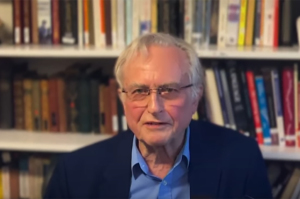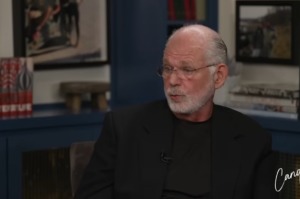Mongolian Christian TV Station Shuts Down
ULAN BATOR, Mongolia -- Tom Terry planned to give Mongolians another biblical summer -- along with "The Flintstones" and NBA basketball.
The general director of Eagle TV, a popular U.S.-Mongolian joint venture, had lined up nightly broadcasts of "Abraham," "Jacob" and other films drawn from the Old and New Testaments.
But those plans were scrapped in April when disputes over finances and control led the American partners to shut down 8-year-old Eagle TV, an unusual Christian-oriented business in this Buddhist, formerly communist society.
Along with American-style evangelism, Eagle TV had brought Mongolia "The Flintstones," live coverage of the Iraq war and NBA basketball games.
"Eagle TV was founded for two purposes. One was to advance the gospel of Jesus Christ and the other reason was for the advancement of freedom and democracy," Terry said.
Eagle TV went on the air in 1995. Over the years, its programming included evangelists, biblical cartoons, Christian rock videos and testimonies by newly converted Mongolians.
"The Flintstones" was especially popular with both parents and children. Dubbed into Mongolian, the 1960s American cartoon series about Fred Flintstone's family and friends in the Stone Age town of Bedrock was renamed "The Flint Stone People."
"`The Flint Stone People' showed how normal people celebrate life and happiness together," said Balganjav Oyunchimeg, a retired civil servant. "We learned many lessons from that family."
Her 8-year-old grandson, Lhavagdorj Temujin, added: "I hope that it comes back on TV again. I miss that show."
Terry and his backers hope to start a new, American-run station and are waiting to see whether the government will let them apply for their own broadcast license.
Eagle TV grew out of an unlikely alliance in 1992 between born-again Christians from Sioux Falls, South Dakota, and Mongolia's newly democratic government.
The end of communist rule in 1990 had restored religious freedom -- and set off a flurry of activity by Christian groups trying to win Mongolian converts.
Mongolian leaders wanted to instill Western-style broadcasting in this former Soviet ally. The country had only one television station -- the state broadcaster linked to the formerly communist Mongolian People's Revolutionary Party.
With many of Mongolia's 2.4 million people living in poverty, no station stood to make a profit. But the Americans agreed to pay for Eagle TV, on condition that it show evangelical programs along with its other fare.
Eagle's news coverage also made a splash in a society long limited to the communist government's bland official media.
"The Eagle TV news was very honest. They gave quick and detailed news," said Ganhuyag Mungunzul, a 23-year-old cook. "The other channels only gave brief news."
Eagle's coverage included a six-part series in 2000 titled "Swindle of the Century" that looked at claims of corruption at the state-owned Erdenet copper mine, Mongolia's biggest business. Much of the criticism in the report was aimed at the former ruling party.
Following the broadcast, an Eagle TV editor was beaten by unknown attackers. Burglars stole documents used in the broadcast from the home of another employee.
After the U.S.-led attack on Iraq, Eagle carried CNN, translated into Mongolian and with local commentary.
Terry said as many as 95 percent of Mongolian viewers tuned in to Eagle's Iraq coverage, though the country has no independent surveys to confirm that.
Terry, 39, who has spent his career at Christian-oriented radio and TV stations, moved to Mongolia with his family last November.
During his summer biblical movies, viewers could call in to ask religious questions or receive free Bibles.
Steve Posey, president of the American group that owned half of Eagle TV, said in an e-mail from Sioux Falls that 10,000 viewers have called the station over the past three years to ask religious questions. He said about 2,500 later converted to Christianity.
Eagle TV broke up after the Americans complained that their Mongolian partners failed to pay their share of expenses, while the Mongolians said the Americans weren't sharing management control.
Terry said the Americans agreed in mid-April to end the venture and on the night of April 21 removed their own broadcasting equipment.
"I told the staff we are going off the air at midnight and we weren't coming back on. They were in shock," said Terry. "We put everything into the master control trailer and at 1:30 a.m., a truck pulled up and we took it away."
By Michael Kohn





























